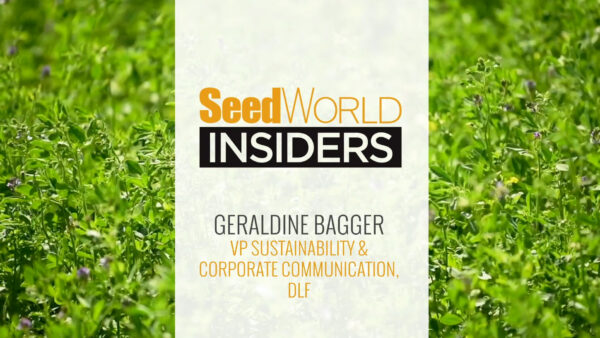Nothing can stay static for very long, and the same thing is true of associations: growth and change are a necessary part of doing business. The International Seed Federation (ISF) is no different.
After more than two years of reflection, and most of it while being stuck in a virtual world due to COVID-19, the association has concluded important changes in its structure. The new structure, says Michael Keller, secretary general of ISF, should give ISF a better foundation to reach their new key strategic objectives by 2025.
Read part one of this series here.
One of the other difficulties ISF faced during this structural change was the inability to meet in-person during the process.
“I have to really emphasize my appreciation to all of our members,” Keller says. “Not only did they accept this new structure, but they also called for nominations and approval of those nominations all in a virtual world. That means, all this was done in trust.”
That trust has helped ISF better structure the new coordination groups and new members of the ISF secretariat.
“We received a high number of nominations throughout the world,” Keller says. “In addition, we had a lot of direct contact with new groups to explain how this new structure functions — meaning there was a lot of interaction between the secretariat and all those nominated to set it up.”
And while leading virtually isn’t ideal, Donald Coles, president of ISF, says the ISF secretariat has been exemplary.
“It’s important to recognize that many of us have been through significant personal and business challenges,” Coles says. “Most of these challenges remain unseen and unknown. It’s a credit to all involved in the administration of ISF and its related organizations that so much has been achieved in so little time.”
When it comes to the future, though, Coles is hopeful that the time of a virtual-only world is coming to an end.
“I hope that communicating in a virtual world is over, at least in part,” he says. “ISF now has an opportunity to expand its communication mediums and methods.”
But, with the upcoming in-person World Seed Congress, it’s important to remember how to communicate the message of the seed industry in person again.
“Don’t be boring!” Coles advises. “Don’t make it technical or use industry jargon. All in person communication must come with a personal story that is empathetic to everyday consumers. Simple, but factual statements like my phrase, ‘Almost all Life on the planet relies on seed to survive!’ works.”
Getting together for the first time in two years in Barcelona is what’s exciting Keller most about this year.
“It’s exciting to meet again in person, and we have a lot of topics to discuss,” he says. “The seed sector needs to be more present and more visible to provide more solutions.”
Priorities to Keep in Mind
When it comes to this year’s priorities, both Michael Keller, secretary general of the International Seed Federation (ISF), and Donald Coles, president of ISF, have many points top-of-mind.
Rising misinformation is a major concern Coles sees across the industry. “There are many groups with an extremist ideology that are intent on promoting an unscientific and unsustainable agenda,” he says.
Especially concerning areas and regulations like the Farm-to-Fork agenda in Europe, Coles sees a lack of communication about how the seed sector is engaging in climate change efforts.
Keller’s main goals are continuing to engage beyond the boundaries of the seed sector, with new partners, be them NGOs, countries or another stakeholder in the value chain. “Despite the progress made over many years, a lot of countries still have farmers who don’t have seed choice or access to quality seed,” he says. “There’s a clear need to work together not only within the private sector, but also with the public sector.”
Deepening relationships, especially within the food systems, is imperative.
Finally, improving plant breeder’s rights to continue to encourage new innovations stays top-of-mind.
“We need a crystal-clear regulation concerning intellectual property rights of plant breeders,” Keller says. “It’s clear there is pressure on plant breeders’ rights, and we need to overcome it. We need incentives to innovate.”
WHERE ON THE WEB: Want to review what ISF’s key strategic objectives are? Reread our overview on them here.













